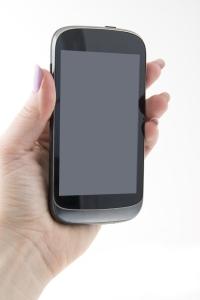On Monday June 9, South Carolina became the 44th state to ban texting and driving. The law went into effect immediately after it was signed by Governor Nikki Haley, but police will issue only warnings and not citations and fines for the first 180 days. As the Governors Highway Safety Association (GHSA) reports, South Carolina has made texting while driving a primary offense. This means that law enforcement officers may stop drivers solely for the offense of texting behind the wheel, even if the motorists have committed no other traffic offenses. While the fines that are imposed on drivers for breaking the texting ban are some of the lowest in the nation, the law does provide an important benefit for victims of collisions with texting drivers.
As the Governors Highway Safety Association (GHSA) reports, South Carolina has made texting while driving a primary offense. This means that law enforcement officers may stop drivers solely for the offense of texting behind the wheel, even if the motorists have committed no other traffic offenses. While the fines that are imposed on drivers for breaking the texting ban are some of the lowest in the nation, the law does provide an important benefit for victims of collisions with texting drivers.
When a motorist breaks a safety law, this action may be considered negligence per se. In other words, the violation of the law means it is presumed that the driver was unreasonably careless. As a result, a victim injured in a motor vehicle collision does not have to prove that the driver was negligent, but simply must show that the negligence was the direct cause of injury. This can make it easier for victims of texting and driving accidents to be compensated for losses. An experienced Charleston, SC texting lawyer should still be consulted after a collision for help pursuing a case, as car accident claims can be complicated for many reasons.
Texting and Driving Ban Now Statewide in South Carolina
Charleston, Mount Pleasant and other areas in South Carolina already had local bans in place before Governor Haley signed the statewide texting ban. However, state law takes precedence over local ordinances, which means that the new law will apply throughout South Carolina and the local bans are no longer in effect.
The Charleston ban that was passed last year attempted to cover the category of distracted driving more broadly rather than simply addressing texting. The local ban also applied to vehicles that were not traditional passenger cars, such as pedicabs, skateboards, golf carts and mopeds. A city spokesperson believes that provisions of Charleston’s law not directly contrary to the statewide ban will remain in effect.
Under the state rules, text-based communications including emailing, text messaging and instant messaging are prohibited while driving. Dialing a phone and talking on a cell phone are still allowed. Drivers will also be permitted to use their cell phones to text when parked, when stopped at a red light or when stopped at a stop sign. Requests for emergency assistance may still be texted, and drivers can use hands-free devices as well as phone GPS devices.
For drivers who break the rules, the fine for a first offense is just $25, which is lower than the $100 fine that was imposed on Charleston motorist under last year’s law. A clause in the state ban also prohibits the reporting of texting-and-driving citations to drivers’ insurance companies.
While the law may not go as far as safety advocates would like to prevent texting and driving, at least it will standardize the rules and hopefully discourage motorists from engaging in the dangerous behavior throughout South Carolina. The fact that the law may make it easier for those who are hurt to bring personal injury claims is also a benefit. Victims who are injured by texting drivers should consult with an experienced attorney for help understanding their rights and pursuing a damage claim.


